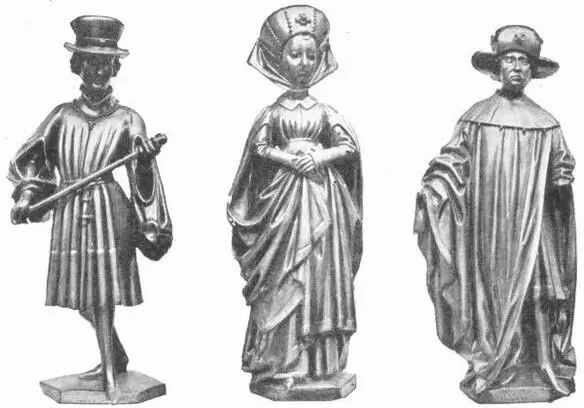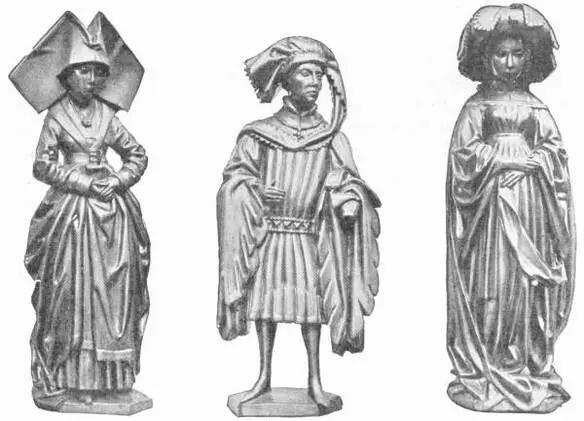Herbert Wells - A Short History of the World
Здесь есть возможность читать онлайн «Herbert Wells - A Short History of the World» весь текст электронной книги совершенно бесплатно (целиком полную версию без сокращений). В некоторых случаях можно слушать аудио, скачать через торрент в формате fb2 и присутствует краткое содержание. Год выпуска: 2011, Жанр: История, на английском языке. Описание произведения, (предисловие) а так же отзывы посетителей доступны на портале библиотеки ЛибКат.
- Название:A Short History of the World
- Автор:
- Жанр:
- Год:2011
- ISBN:нет данных
- Рейтинг книги:4 / 5. Голосов: 1
-
Избранное:Добавить в избранное
- Отзывы:
-
Ваша оценка:
- 80
- 1
- 2
- 3
- 4
- 5
A Short History of the World: краткое содержание, описание и аннотация
Предлагаем к чтению аннотацию, описание, краткое содержание или предисловие (зависит от того, что написал сам автор книги «A Short History of the World»). Если вы не нашли необходимую информацию о книге — напишите в комментариях, мы постараемся отыскать её.
A Short History of the World — читать онлайн бесплатно полную книгу (весь текст) целиком
Ниже представлен текст книги, разбитый по страницам. Система сохранения места последней прочитанной страницы, позволяет с удобством читать онлайн бесплатно книгу «A Short History of the World», без необходимости каждый раз заново искать на чём Вы остановились. Поставьте закладку, и сможете в любой момент перейти на страницу, на которой закончили чтение.
Интервал:
Закладка:
A still more striking intimation of the decay of the living and sustaining forces of the papacy appeared when presently the Popes came into conflict with the growing power of the French King. During the lifetime of the Emperor Frederick II, Germany fell into disunion, and the French King began to play the rôle of guard, supporter and rival to the Pope that had hitherto fallen to the Hohenstaufen Emperors. A series of Popes pursued the policy of supporting the French monarchs. French princes were established in the kingdom of Sicily and Naples, with the support and approval of Rome, and the French Kings saw before them the possibility of restoring and ruling the Empire of Charlemagne. When, however, the German interregnum after the death of Frederick II, the last of the Hohenstaufens, came to all end and Rudolf of Habsburg was elected first Habsburg Emperor (1273), the policy of Rome began to fluctuate between France and Germany, veering about with the sympathies of each successive Pope. In the East in 1261 the Greeks recaptured Constantinople from the Latin emperors, and the founder of the new Greek dynasty, Michael Palæologus, Michael VIII, after some unreal tentatives of reconciliation with the Pope, broke away from the Roman communion altogether, and with that, and the fall of the Latin kingdoms in Asia, the eastward ascendancy of the Popes came to an end.

COSTUMES OF THE BURGUNDIAN NOBILITY: FLEMISH WORK OF THE FIFTEENTH CENTURY
In 1294 Boniface VIII became Pope. He was an Italian, hostile to the French, and full of a sense of the great traditions and mission of Rome. For a time he carried things with a high hand. In 1300 he held a jubilee, and a vast multitude of pilgrims assembled in Rome. “So great was the influx of money into the papal treasury, that two assistants were kept busy with the rakes collecting the offerings that were deposited at the tomb of St. Peter.” [1] But this festival was a delusive triumph. Boniface came into conflict with the French King in 1302, and in 1303, as he was about to pronounce sentence of excommunication against that monarch, he was surprised and arrested in his own ancestral palace at Anagni, by Guillaume de Nogaret. This agent from the French King forced an entrance into the palace, made his way into the bedroom of the frightened Pope—he was lying in bed with a cross in his hands—and heaped threats and insults upon him. The Pope was liberated a day or so later by the townspeople, and returned to Rome; but there he was seized upon and again made prisoner by the Orsini family, and in a few weeks’ time the shocked and disillusioned old man died a prisoner in their hands.

COSTUMES OF THE BURGUNDIAN NOBILITY: FLEMISH WORK OF THE FIFTEENTH CENTURY
This series is from casts in the Victoria and Albert Museum of the original brass statuettes in the Rijks Museum, Amsterdam
The people of Anagni did resent the first outrage, and rose against Nogaret to liberate Boniface, but then Anagni was the Pope’s native town. The important point to note is that the French King in this rough treatment of the head of Christendom was acting with the full approval of his people; he had summoned a council of the Three Estates of France (lords, church and commons) and gained their consent before proceeding to extremities. Neither in Italy, Germany nor England was there the slightest general manifestation of disapproval at this free handling of the sovereign pontiff. The idea of Christendom had decayed until its power over the minds of men had gone.
Throughout the fourteenth century the papacy did nothing to recover its moral sway. The next Pope elected, Clement V, was a Frenchman, the choice of King Philip of France. He never came to Rome. He set up his court in the town of Avignon, which then belonged not to France but to the papal See, though embedded in French territory, and there his successors remained until 1377, when Pope Gregory XI returned to the Vatican palace in Rome. But Gregory XI did not take the sympathies of the whole church with him. Many of the cardinals were of French origin and their habits and associations were rooted deep at Avignon. When in 1378 Gregory XI died, and an Italian, Urban VI, was elected, these dissentient cardinals declared the election invalid, and elected another Pope, the anti-Pope, Clement VII. This split is called the Great Schism. The Popes remained in Rome, and all the anti-French powers, the Emperor, the King of England, Hungary, Poland and the North of Europe were loyal to them. The anti-Popes, on the other hand, continued in Avignon, and were supported by the King of France, his ally the King of Scotland, Spain, Portugal and various German princes. Each Pope excommunicated and cursed the adherents of his rival (1378-1417).
Is it any wonder that presently all over Europe people began to think for themselves in matters of religion?
The beginnings of the Franciscans and the Dominicans, which we have noted in the preceding chapters, were but two among many of the new forces that were arising in Christendom, either to hold or shatter the church as its own wisdom might decide. Those two orders the church did assimilate and use, though with a little violence in the case of the former. But other forces were more frankly disobedient and critical. A century and a half later came Wycliffe (1320-1384). He was a learned Doctor at Oxford. Quite late in his life he began a series of outspoken criticisms of the corruption of the clergy and the unwisdom of the church. He organized a number of poor priests, the Wycliffites, to spread his ideas throughout England; and in order that people should judge between the church and himself, he translated the Bible into English. He was a more learned and far abler man than either St. Francis or St. Dominic. He had supporters in high places and a great following among the people; and though Rome raged against him, and ordered his imprisonment, he died a free man. But the black and ancient spirit that was leading the Catholic Church to its destruction would not let his bones rest in the grave. By a decree of the Council of Constance in 1415, his remains were ordered to be dug up and burnt, an order which was carried out at the command of Pope Martin V by Bishop Fleming in 1428. This desecration was not the act of some isolated fanatic; it was the official act of the church.
[1] J. H. Robinson.
XLVIII
THE MONGOL CONQUESTS
BUT in the thirteenth century, while this strange and finally ineffectual struggle to unify Christendom under the rule of the Pope was going on in Europe, far more momentous events were afoot upon the larger stage of Asia. A Turkish people from the country to the north of China rose suddenly to prominence in the world’s affairs, and achieved such a series of conquests as has no parallel in history. These were the Mongols. At the opening of the thirteenth century they were a horde of nomadic horsemen, living very much as their predecessors, the Huns, had done, subsisting chiefly upon meat and mare’s milk and living in tents of skin. They had shaken themselves free from Chinese dominion, and brought a number of other Turkish tribes into a military confederacy. Their central camp was at Karakorum in Mongolia.
At this time China was in a state of division. The great dynasty of Tang had passed into decay by the tenth century, and after a phase of division into warring states, three main empires, that of Kin in the north with Pekin as its capital and that of Sung in the south with a capital at Nankin, and Hsia in the centre, remain. In 1214 Jengis Khan, the leader of the Mongol confederates, made war on the Kin Empire and captured Pekin (1214). He then turned westward and conquered Western Turkestan, Persia, Armenia, India down to Lahore, and South Russia as far as Kieff. He died master of a vast empire that reached from the Pacific to the Dnieper.
Читать дальшеИнтервал:
Закладка:
Похожие книги на «A Short History of the World»
Представляем Вашему вниманию похожие книги на «A Short History of the World» списком для выбора. Мы отобрали схожую по названию и смыслу литературу в надежде предоставить читателям больше вариантов отыскать новые, интересные, ещё непрочитанные произведения.
Обсуждение, отзывы о книге «A Short History of the World» и просто собственные мнения читателей. Оставьте ваши комментарии, напишите, что Вы думаете о произведении, его смысле или главных героях. Укажите что конкретно понравилось, а что нет, и почему Вы так считаете.








